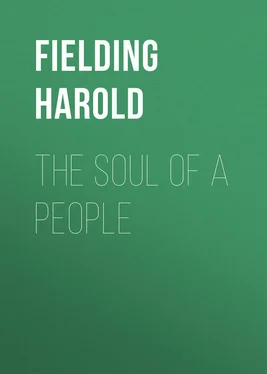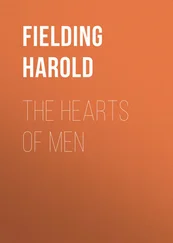Harold Fielding - The Soul of a People
Здесь есть возможность читать онлайн «Harold Fielding - The Soul of a People» — ознакомительный отрывок электронной книги совершенно бесплатно, а после прочтения отрывка купить полную версию. В некоторых случаях можно слушать аудио, скачать через торрент в формате fb2 и присутствует краткое содержание. Жанр: foreign_religion, foreign_antique, foreign_prose, на английском языке. Описание произведения, (предисловие) а так же отзывы посетителей доступны на портале библиотеки ЛибКат.
- Название:The Soul of a People
- Автор:
- Жанр:
- Год:неизвестен
- ISBN:нет данных
- Рейтинг книги:5 / 5. Голосов: 1
-
Избранное:Добавить в избранное
- Отзывы:
-
Ваша оценка:
- 100
- 1
- 2
- 3
- 4
- 5
The Soul of a People: краткое содержание, описание и аннотация
Предлагаем к чтению аннотацию, описание, краткое содержание или предисловие (зависит от того, что написал сам автор книги «The Soul of a People»). Если вы не нашли необходимую информацию о книге — напишите в комментариях, мы постараемся отыскать её.
The Soul of a People — читать онлайн ознакомительный отрывок
Ниже представлен текст книги, разбитый по страницам. Система сохранения места последней прочитанной страницы, позволяет с удобством читать онлайн бесплатно книгу «The Soul of a People», без необходимости каждый раз заново искать на чём Вы остановились. Поставьте закладку, и сможете в любой момент перейти на страницу, на которой закончили чтение.
Интервал:
Закладка:
His disciples left him, and he was alone. He went away to a great grove of trees near by – those beautiful groves of mango and palm and fig that are the delight of the heart in that land of burning, flooding sunshine – and there he slept, defeated, discredited, and abandoned; and there the truth came to him.
There is a story of how a young wife, coming to offer her little offerings to the spirit of the great fig-tree, saw him, and took him for the spirit, so beautiful was his face as he rose.
There are spirits in all the great trees, in all the rivers, in all the hills – very beautiful, very peaceful, loving calm and rest.
The woman thought he was the spirit come down to accept her offering, and she gave it to him – the cup of curdled milk – in fear and trembling, and he took it. The woman went away again full of hope and joy, and the prince remained in the grove. He lived there for forty-nine days, we are told, under the great fig-tree by the river. And the fig-tree has become sacred for ever because he sat there and because there he found the truth. We are told of it all in wonderful trope and imagery – of his last fight over sin, and of his victory.
There the truth came to him at last out of his own heart. He had sought for it in men and in Nature, and found it not, and, lo! it was in his own heart.
When his eyes were cleared of imaginings, and his body purified by temperance, then at last he saw, down in his own soul, what he had sought the world over for. Every man carries it there. It is never dead, but lives with our life, this light that we seek. We darken it, and turn our faces from it to follow strange lights, to pursue vague glimmers in the dark, and there, all the time, is the light in each man's own heart. Darkened it may be, crusted over with our ignorance and sin, but never dead, never dead, always burning brightly for us when we care to seek for it.
The truth for each man is in his own soul. And so it came at last, and he who saw the light went forth and preached it to all the world. He lived a long life, a life full of wonderful teaching, of still more marvellous example. All the world loved him.
He saw again Yathodaya, she who had been his wife; he saw his son. Now, when passion was dead in him, he could do these things. And Yathodaya was full of despair, for if all the world had gained a teacher, she had lost a husband. So it will be for ever. This is the difference between men and women. She became a nun, poor soul! and her son – his son – became one of his disciples.
I do not think it is necessary for me to tell much more of his life. Much has been told already by Professor Max Müller and other scholars, who have spared no pains to come to the truth of that life. I do not wish to say more. So far, I have written to emphasize the view which, I think, the Burmese take of the Buddha, and how he came to his wisdom, how he loved, and how he died.
He died at a great age, full of years and love. The story of his death is most beautiful. There is nowhere anything more wonderful than how, at the end of that long good life, he entered into the Great Peace for which he had prepared his soul.
'Ananda,' he said to his weeping disciple, 'do not be too much concerned with what shall remain of me when I have entered into the Peace, but be rather anxious to practise the works that lead to perfection; put on those inward dispositions that will enable you also to reach the everlasting rest.'
And again:
'When I shall have left life and am no more seen by you, do not believe that I am no longer with you. You have the laws that I have found, you have my teachings still, and in them I shall be ever beside you. Do not, therefore, think that I have left you alone for ever.'
And before he died:
'Remember,' he said, 'that life and death are one. Never forget this. For this purpose have I gathered you together; for life and death are one.'
And so 'the great and glorious teacher,' he who never spoke but good and wise words, he who has been the light of the world, entered into the Peace.
CHAPTER IV
THE WAY TO THE GREAT PEACE
'Come to Me: I teach a doctrine which leads to deliverance from all the miseries of life.' — Saying of the Buddha.
To understand the teaching of Buddhism, it must be remembered that to the Buddhist, as to the Brahmin, man's soul is eternal.
In other faiths and other philosophies this is not so. There the soul is immortal; it cannot die, but each man's soul appeared newly on his birth. Its beginning is very recent.
To the Buddhist the beginning as well as the end is out of our ken. Where we came from we cannot know, but certainly the soul that appears in each newborn babe is not a new thing. It has come from everlasting, and the present life is merely a scene in the endless drama of existence. A man's identity, the sum of good and of evil tendencies, which is his soul, never dies, but endures for ever. Each body is but a case wherein the soul is enshrined for the time.
And the state of that soul, whether good predominate in it or evil, is purely dependent on that soul's thoughts and actions in time past.
Men are not born by chance wise or foolish, righteous or wicked, strong or feeble. A man's condition in life is the absolute result of an eternal law that as a man sows so shall he reap; that as he reaps so has he sown.
Therefore, if you find a man's desires naturally given towards evil, it is because he has in his past lives educated himself to evil. And if he is righteous and charitable, long-suffering and full of sympathy, it is because in his past existence he has cultivated these virtues; he has followed goodness, and it has become a habit of his soul.
Thus is every man his own maker. He has no one to blame for his imperfections but himself, no one to thank for his virtues but himself. Within the unchangeable laws of righteousness each man is absolutely the creator of himself and of his own destiny. It has lain, and it lies, within each man's power to determine what manner of man he shall be. Nay, it not only lies within his power to do so, but a man must actually mould himself. There is no other way in which he can develop.
Every man has had an equal chance. If matters are somewhat unequal now, there is no one to blame but himself. It is within his power to retrieve it, not perhaps in this short life, but in the next, maybe, or the next.
Man is not made perfect all of a sudden, but takes time to grow, like all valuable things. You might as well expect to raise a teak-tree in your garden in a night as to make a righteous man in a day. And thus not only is a man the sum of his passions, his acts and his thoughts, in past time, but he is in his daily life determining his future – what sort of man he shall be. Every act, every thought, has its effect, not only upon the outer world, but upon the inner soul. If you follow after evil, it becomes in time a habit of your soul. If you follow after good, every good act is a beautifying touch to your own soul.
Man is as he has made himself; man will be as he makes himself. This is a very simple theory, surely. It is not at all difficult to understand the Buddhist standpoint in the matter. It is merely the theory of evolution applied to the soul, with this difference: that in its later stages it has become a deliberate and a conscious evolution, and not an unconscious one.
And the deduction from this is also simple. It is true, says Buddhism, that every man is the architect of himself, that he can make himself as he chooses. Now, what every man desires is happiness. As a man can form himself as he will, it is within his power to make himself happy, if he only knows how. Let us therefore carefully consider what happiness is, that we may attain it; what misery is, that we may avoid it.
Читать дальшеИнтервал:
Закладка:
Похожие книги на «The Soul of a People»
Представляем Вашему вниманию похожие книги на «The Soul of a People» списком для выбора. Мы отобрали схожую по названию и смыслу литературу в надежде предоставить читателям больше вариантов отыскать новые, интересные, ещё непрочитанные произведения.
Обсуждение, отзывы о книге «The Soul of a People» и просто собственные мнения читателей. Оставьте ваши комментарии, напишите, что Вы думаете о произведении, его смысле или главных героях. Укажите что конкретно понравилось, а что нет, и почему Вы так считаете.












